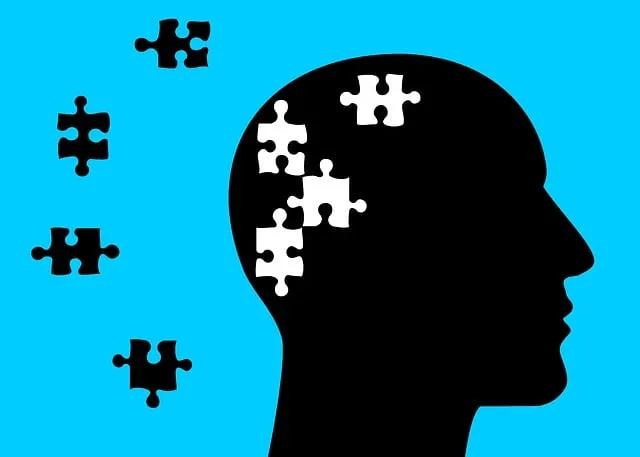Broomfield Kaiser Permanente mental health services focus on empowering individuals with essential coping skills for stress, anxiety, and depression management. They provide tailored guidance including mood management, crisis intervention, and risk planning to enhance resilience. Their comprehensive approach, emphasizing patient-centered care and evidence-based practices, supports diverse backgrounds through culturally competent healthcare providers. By offering resources like mindfulness, physical activity, and group therapy, they enable clients to develop healthy coping mechanisms for long-term emotional well-being.
“Coping skills, essential tools for navigating life’s challenges, play a pivotal role in mental well-being. This article explores their profound significance and introduces Broomfield Kaiser Permanente Mental Health Services as a trusted resource. We delve into effective strategies to foster resilient coping mechanisms, offering practical guidance on integration into daily routines. Discover how these techniques can enhance overall mental health, drawing from the comprehensive services available at Broomfield Kaiser Permanente.”
- Understanding Coping Skills and Their Significance
- Broomfield Kaiser Permanente Mental Health Services: An Overview
- Strategies for Developing Effective Coping Mechanisms
- Implementing and Sustaining Healthy Coping Skills in Daily Life
Understanding Coping Skills and Their Significance

Coping skills are the strategies individuals use to navigate life’s challenges and maintain emotional balance. They play a pivotal role in mental well-being, especially when managing stress, anxiety, or depression. At Broomfield Kaiser Permanente mental health services, we recognize that developing robust coping mechanisms is crucial for overall health. These skills empower people to confront difficult situations head-on, promoting resilience and enhancing their ability to cope with life’s ups and downs without resorting to harmful behaviors.
Understanding the importance of these skills, our professionals offer guidance tailored to individual needs. From mood management techniques to crisis intervention strategies and risk management planning, we equip mental health professionals with comprehensive tools. These practices not only support clients in the present but also foster long-term emotional resilience, ensuring individuals can effectively navigate future challenges and lead fulfilling lives.
Broomfield Kaiser Permanente Mental Health Services: An Overview

Broomfield Kaiser Permanente Mental Health Services stands as a beacon of hope and support for individuals seeking comprehensive psychological care. This healthcare organization offers an extensive array of services designed to address a wide range of mental health concerns, from routine stress management workshops to specialized treatments for more complex conditions. Their approach emphasizes patient-centered care, tailored to meet the unique needs of each individual.
The Mental Health Services department incorporates evidence-based practices and innovative therapeutic techniques, ensuring culturally competent care that respects diverse backgrounds. Employees undergo specialized training in areas such as emotional intelligence and healthcare provider cultural competency, enabling them to offer empathetic, effective support. This commitment to excellence fosters a safe and supportive environment where individuals can navigate their mental health journeys with confidence and dignity.
Strategies for Developing Effective Coping Mechanisms

Developing effective coping mechanisms is a crucial aspect of maintaining mental well-being. Broomfield Kaiser Permanente mental health services offer valuable resources and strategies for individuals seeking to enhance their resilience. One key approach involves identifying personal stress triggers and implementing tailored coping strategies. This may include practices such as mindfulness meditation, deep breathing exercises, or engaging in physical activities that promote relaxation and a sense of calm. By incorporating these techniques into daily routines, individuals can better navigate challenging situations and foster a positive mindset.
Additionally, the Community Outreach Program Implementation plays a significant role in stress management and burnout prevention. Group therapy sessions, support groups, and community-based programs provide platforms for sharing experiences, offering mutual support, and learning from peers. These initiatives not only offer practical tools for coping but also create a sense of belonging and connection, which are essential for maintaining mental health. Through such programs, individuals can discover effective coping mechanisms while building a supportive network that contributes to overall resilience.
Implementing and Sustaining Healthy Coping Skills in Daily Life

Developing healthy coping skills is an ongoing process that requires dedication and practice. At Broomfield Kaiser Permanente mental health services, we understand that mastering these strategies is essential for maintaining mental wellness. Our Mental Wellness Coaching Programs are designed to guide individuals through this journey, focusing on emotional regulation and resilience building.
By integrating these techniques into daily life, individuals can effectively manage stress, navigate challenges, and enhance their overall well-being. This includes practicing mindfulness, engaging in physical activity, cultivating positive self-talk, and seeking support from peers or professionals when needed. With consistent effort, these healthy coping skills can become second nature, allowing folks to thrive even amidst life’s hurdles.
Coping skills development is a vital aspect of maintaining mental well-being, and Broomfield Kaiser Permanente mental health services offer valuable resources for those seeking support. By understanding the significance of coping strategies and implementing effective mechanisms, individuals can enhance their resilience and navigate life’s challenges with greater ease. The strategies outlined in this article provide a framework for developing healthy coping skills, which, when integrated into daily routines, can lead to improved overall mental health and well-being.






